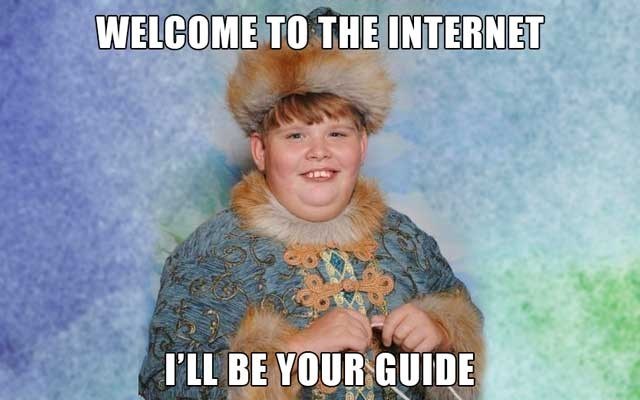Browsing the Internet last week I came across an odd anniversary.
It's been 10 years since the Numa Numa video was first posted to the Internet.
If you're not familiar, a quick Google search should catch you up to speed (go ahead, I'll wait).
In 2004, Gary Brolsma posted a video of himself lip-syncing along to a Romanian pop song. It's a simple concept, by today's standards of viral videos, but it's just as endearing as ever.
Brolsma's infectious dancing to a catchy tune went viral before "going viral" was a thing. The original, grainy video was posted to www.newgrounds.com — YouTube wouldn't launch until 2005 — and quickly took the Internet world by storm.
The "Numa Numa guy" was a hit, and paved the way for a million wanna be Internet stars to follow in his footsteps.
Stumbling upon this anniversary led me down a dangerous path of Internet nostalgia.
I soon went back and rewatched some of the old "classics" — Star Wars kid, Afro ninja, Chocolate Rain — and got to thinking about how much the Internet has changed.
When I first started browsing the Internet, it was like a different world. It was clunky, slow and unreliable.
But it was also unpredictable. Maybe that has something to do with the naive, early-teen adolescent brain I was operating with at the time, but I never knew quite what I might encounter once I crossed that mystical, dial-up threshold.
Things have certainly changed.
The Internet has become bloated, formulaic and predictable.
It's all advertising and opinions, click-bait and porn.
Maybe it's because I spend so much time on it these days, but I don't really even have to look at it anymore to know what's there.
Someone on the left just made a pointed comment on Twitter. Someone on the right fired back. A politician just pooped out a manufactured, thrice-proofed statement and now both sides are poking at it with a stick.
Ideas and opinions from all over the spectrum are posted here or there, sparking insults disguised as debate.
People are clicking and liking and sharing a million articles in list form that I will never read.
But is anyone really learning anything?
I once heard someone say that, yes, in theory, the Internet will make us smarter, because we now have access to all the information we could ever want.
But in practice, finding the useful, solid, true information is like finding a needle in a haystack — it's buried underneath 10,000 articles about Kim Kardashian's giant, oily ass.
And as humans, we tend to seek out information that affirms the opinions we already hold anyway. Something mind-altering and potentially life-changing could be entrenched somewhere in the Internet but we'll never know because oh my god did you guys see Kim Kardashian's ass? It's huge.
In the last decade, the Internet has gone from an unexplored, wild-west frontier to a corporate, commercialized entity. But at least it's still open to everyone.
Obnoxious as it may be at times, I think I still prefer it to how it could look 10 years from now.
Even as I type this, the battle for net neutrality is raging.
If you haven't heard about the next big change that could be coming to the intertubes, you might be interested in doing some research into it.
What it boils down to is the big, American telecom giants wanting to throttle the Internet to control the flow of content.
The repercussions will be far-reaching, and the Internet as we have long known it will never be the same.
The cynical side of me wants to say that the battle for net neutrality can't really be won.
In November, Republican senator Ted Cruz posted a hilariously misguided tweet on the subject.
"'Net Neutrality' is Obamacare for the Internet," Cruz wrote. "The Internet should not operate at the speed of government."
This is so painfully telling. Ted Cruz has no idea what net neutrality means, but he's against it, because partisanship.
These are the policy-makers who decide our fates on a regular basis, and this is why we often can't have nice things.
But we'll see, I guess.
In the meantime, I'll take a stupid sense of pride in the fact that I was one of the few who were lucky enough to be around in the early days — not just before the Internet was regulated, but the wild and crazy days of dial-up.
If I live to be an old man, my grandkids will marvel at the fact that I am indeed, older than the Internet.
And I'll think back to the time I spent exploring this exotic and wonderful creation, when it was new and pure and open, never really knowing what I was looking for but not caring much either way if I found it.




